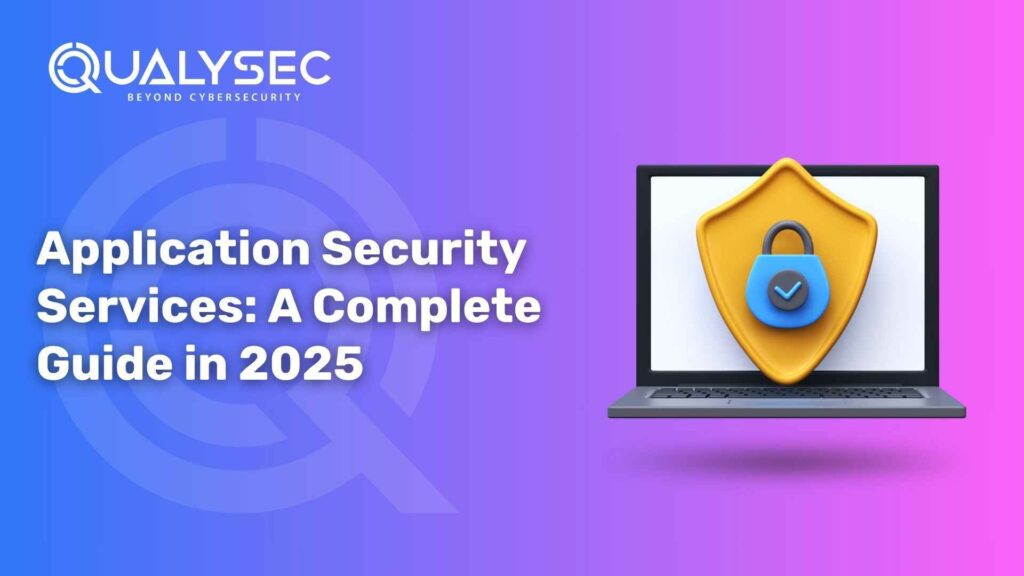Top 20 Application Security Companies for 2025
Cyberattacks are proliferating, and applications are one of the biggest targets. A recent Veracode State of Software Security report revealed that 74% of applications contain at least one security vulnerability. As a result, businesses are actively turning to top Application Security Companies to secure their digital assets. As many organisations move to cloud-based and mobile environments, application security is no longer just an IT issue – it is a business issue. I have seen some startups, as well as large enterprises, take risks with their application security approach because they did not take app security seriously from the start. According to IBM, the average cost of a data breach in the United States is over $9 million, so the costs associated with prevention are less than the costs associated with recovery. Therefore, finding the right application security firm is very important. In this blog, I have compiled a list of 21 vetted app security providers that are partnered with businesses in 2025 to keep them safe Top 20 Application Security Companies and Vendors As cyber threats are on the rise, USA businesses are placing more focus on application security. Apps get hacked because of the application’s ease of access to customer and business data. It is important to work with the proper security entity to keep your app safe and secure. In this blog, we have listed 20 of the top application security vendors that will help protect your software from attacks. 1. Qualysec Qualysec is an emerging application security vendor actively securing web, mobile, and cloud apps for organisations. Headquartered in the U.S., Qualysec has clients all over the world. Since Qualysec employs manual and automated testing (through both methods) to pinpoint security vulnerabilities. They provide reports that are straightforward and clear, and offer recommendations for remediation that all teams can understand – even if they aren’t technical teams! Qualysec helps organisations meet global security standards such as ISO, HIPAA, and PCI-DSS. Their services provide value for organisations at all stages, including idea-stage startups, mid-sized organisations, and large enterprises that seek optimal security but do not prefer complexity. With a focus on results, streamlined communication, and support, Qualysec can be the trusted partner to keep apps secure. Get a Free Security Consultation. 2. Veracode Veracode is a respected provider of application security, offering a comprehensive suite of solutions that includes static and dynamic analysis, software composition analysis, and manual penetration testing. Veracode’s tools seamlessly integrate into developer workflows, helping organisations identify and fix security flaws early in the software development lifecycle. Veracode helps organisations deliver secure software without hindering development, which is especially valuable in today’s fast-paced and innovation-driven environment. 3. Palo Alto Networks (Prisma Cloud) Prisma Cloud, provided by Palo Alto Networks, is a full-stack, cloud-native security platform that secures software throughout its development and deployment lifecycle. Prisma Cloud focuses primarily on code security in hybrid and multi-cloud environments, providing comprehensive visibility and compliance monitoring. For organizations transitioning to a DevSecOps methodology, it is a compelling option. 4. Trend Micro Trend Micro sells cloud app security tools that help protect cloud services, including Microsoft 365, Google Workspace, and others. Their solutions leverage AI and machine learning to understand when malware, phishing attacks, or targeted attacks occur. With a simple API integration, you can easily plug Trend Micro into anything you already have. 5. GitGuardian GitGuardian specializes in detecting sensitive data like API keys and passwords that are publicly or privately exposed in source code. It’s primarily designed for developer-first organisations that utilise Git repositories, including Bitbucket, GitHub, and GitLab. The platform offers real-time detection and remediation, enabling developers to maintain clean and secure codebases. 6. Qualys Qualys is an integrated solution for vulnerability management, web app scanning, and continuous monitoring. It provides real-time visibility for your global IT assets, as well as prioritizing threats based on risk. The automation and scalability of Qualys is an excellent choice for mid-size to large organizations. 7. Snyk Snyk is a security tool geared towards developers. It scans code, dependencies, containers, and IaC (Infrastructure as Code). While Snyk is known for its integration with GitHub, GitLab, and CI/CD, it also enables developers to identify and address vulnerabilities earlier in the development cycle, rather than waiting until they are running in production. 8. Rapid7 Rapid7’s Metasploit is the ultimate framework for penetration testing. It enables security professionals to simulate attacks on their applications, exposing vulnerabilities. In addition, all of Rapid7’s solutions, such as InsightAppSec, provide a full circle of proactive and passive detection capabilities. 9. Appknox Appknox specializes in mobile application security, and their platform allows DevSecOps teams to conduct SAST, DAST, and API scans seamlessly in the development lifecycle. Highly utilized by fintech, e-commerce, and healthcare companies to maintain secure mobile applications. 10. GitLab It offers built-in DevSecOps capabilities, enabling development teams and security teams to operate on a single platform. GitLab provides code quality checks, static analysis, and secret detection as part of your CI/CD pipeline. If you want your development teams to deploy code fast and securely, GitLab is an excellent option. 11. Aqua Security Aqua Security is best known for securing cloud-native applications. It provides comprehensive security for containers, Kubernetes, and serverless functions. Aqua Security scans for vulnerabilities, identifies runtime threats, and manages compliance, making it an excellent fit for a modern DevOps team. 12. Contrast Security This offers a distinctive solution by combining interactive application security testing (IAST) and runtime protection (RASP). Contrast integrates within the application to identify vulnerabilities and block attacks in real-time, which benefits agile development cycles. 13. Cisco Cisco has integrated application security into its broader cybersecurity portfolio, leveraging AppDynamics (application performance management) and Secure Application (anomaly detection for application behaviour). It can be a good choice for enterprises that require application protection in hybrid or native cloud deployments. 14. Fortinet Fortinet is well-known for its network security capabilities, but the company also has solid application security products. The Web






